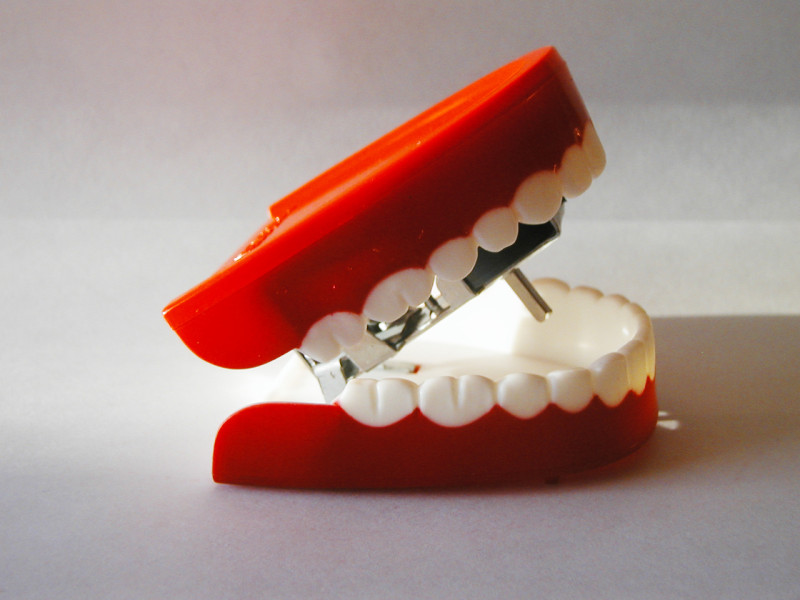JEFFERSON CITY, Mo. – Hundreds of dental hygienists accessorized in purple led by former American Dental Hygienists’ Association – Missouri (MDHA) president and current legislative council chairperson Diann Bomkamp visited the Capitol on Wednesday to lobby for four causes hoping to expand dentistry services available across Missouri.
St. Louis’ own Bomkamp has been a dental hygienist and lobbied in the Capitol for the profession for over three decades. She said decreased rural access to dentistry and evolving technologies influenced their legislative priorities they presented to lawmakers and legislative leadership.
The MDHA hopes to see movement on HB 2027, HB 1717, HB 1923, and adult dental benefits funding. At the end of the day, Bomkamp said their causes would not only provide more dentistry, but would save Missouri money.
HB 2027 and HB 1717 are both sponsored by hygienist-lawmaker Rep. Donna Lichtenegger, R-Jackson. The first hopes to extend the services of a hygienist beyond the dentist office and allow basic dental services, such as scaling, polishing, debridement, radiographs, and sealants, be provided off-site, such as at an elementary school or nursing home, with the supervising dentist’s permission. The written agreement, Bomkamp said, would be especially beneficial in rural areas where many patients do not make it into the dentist’s office at least once a year, as current law dictates that patients must be seen by a dentist at least once a year for unsupervised care.
“This would be wonderful for nursing homes especially,” said Bomkamp. “Many dental problems can arise quickly and spread rapidly with the elderly as their medications and conditions change. Allowing a hygienist to visit places like nursing homes with a written agreement with their dentist could ensure that many patients get the services they need even if their home or abilities changes.”
Nineteen other states have implemented and utilized partnering agreements to expand dental services in a similar fashion as HB 2027, such as California, where Bomkamp has a friend who rotates her location between nursing homes to provide patients with regular annual care.
HB 1717 addresses water fluoridation, and would require mandatory notification to the public and relative state departments if a city is considering removing fluoride from the water supply.
Bomkamp said fluoride has regularly received a bad rap perpetuating many myths, which are not only false but also cause dental problems.
“Fluoride is very important,” said Bomkamp. “Areas with fluoride in the water see decay rates decrease by 25 percent.”
Finally, MDHA looks to HB 1923 and companion bill SB 621, sponsored by Rep. Jay Barnes, R-Jefferson City, and Sen. Gary Romine, R-Ste. Genevieve, respectively, to expand telehealth. The bill contains provisions to expand teledentistry through the use of hygienists, which Bomkamp said would also allow for more services to be provided.
“People talk about how there aren’t enough dental hygienists, but it remains that there simply are not a lot of dental hygienist jobs in parts of Missouri. Teledentistry would allow dentists to expand their practices by sending dental hygienists to provide basic examinations, take x-rays, and more to provide dentists with the information they need to ‘see’ patients who may otherwise not have access to good dental care.”
Bomkamp said their support for the bills primarily lies with experienced hygienists who have not only worked thousands of hours in-office, but have completed continuing education. Hygienists must be licensed with the state and complete post-secondary education. Continuing education, she said, would be a key to also enhancing and developing the teledentistry field so that rural areas would be better served.
Missouri currently has eight dental hygiene programs which graduate upwards of 200 hygienists each year. The professionals are licensed and regulated through the Missouri Dental Board.
MDHA also would like to see adult dental benefits in the state budget again for MO HealthNet. Bomkamp said the benefits have been cut, restored, and withheld in recent years, only to cost the state millions more in emergency room costs.
Bomkamp said lawmakers were open to the priorities and she was thrilled with legislative leadership’s genuine interest in their profession and what law changes the hygienists see as benefiting Missouri.
Rachael Herndon was the editor at The Missouri Times and also produced This Week in Missouri Politics, published Missouri Times Magazine, and co-hosted the #MoLeg podcast. She joined The Missouri Times in 2014, returning to political reporting after working as a campaign and legislative staffer.
Rachael studied at the University of Missouri – Columbia. She lives in Jefferson City with her husband, Brandon, and their two children.



